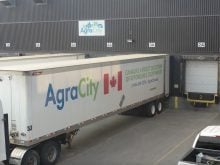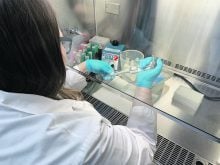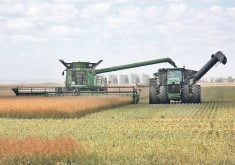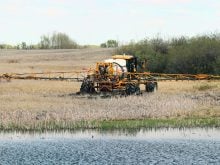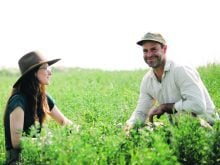Ottawa provides funding to Vancouver firm to develop a more consistent and precise method for measuring soil carbon
The federal government has invested $2 million into a Vancouver company as part of a larger strategy to store more carbon in Canadian farmland.
In late May, Agriculture Minister Marie-Claude Bibeau visited the offices of Terramera, a firm developing technologies to measure the benefits of regenerative agriculture.
“Minister Bibeau witnessed… the work underway to provide more consistent and precise measurement of soil carbon,” Ag Canada said in a release. “Through the adoption of clean technologies, it is expected that this project will help to encourage farmers and ranchers to adopt regenerative management practices and to be incentivized for the carbon they sequester.”
Read Also

Farmers asked to keep an eye out for space junk
Farmers and landowners east of Saskatoon are asked to watch for possible debris in their fields after the re-entry of a satellite in late September.
Regenerative agriculture is often described as practices that improve soil health and reduce the need for fertilizer and other crop inputs. Practices include cover crops, diverse crop rotations, minimal tillage and integrating livestock into the production system.
On its website, Terramera stated that regenerative agriculture “is a set of tools and practices that pulls carbon from the air and transfers it underground — storing carbon and improving soil health with each growing season.”
By measuring how much carbon is stored in the soil through regenerative ag, farmers could potentially be paid for the environmental service.
“These funds will support the soil and carbon measurement technology Terramera is building,” said Karn Manhas, Terramera chief executive officer. “This critical infrastructure will result in better tools for agronomists, and support farmers and ranchers to make this opportunity a reality.”
Agriculture Canada is one of many organizations and businesses promoting regenerative agriculture. Recently, major players like Cargill, General Mills and McCain Foods have committed to the concept.
In 2021, PepsiCo, a company with $70 billion in annual sales, said it aims to see seven million acres of farmland using regenerative practices to grow the oats, potatoes, oranges and other crops it uses.
Agriculture Canada’s $2 million for Terramera was part of a larger investment of $15.2 million under the Agricultural Clean Technology program.
The feds are financially supporting 47 projects to support adoption and research that will reduce greenhouse emissions from Canadian farms.
Most of the funds will be used to install new grain dryers or solar panels on farms. A long list of farms received $63,000 to $689,000 to install new grain dryers. Others received anywhere from $38,000 to $530,000 to install solar panels.






